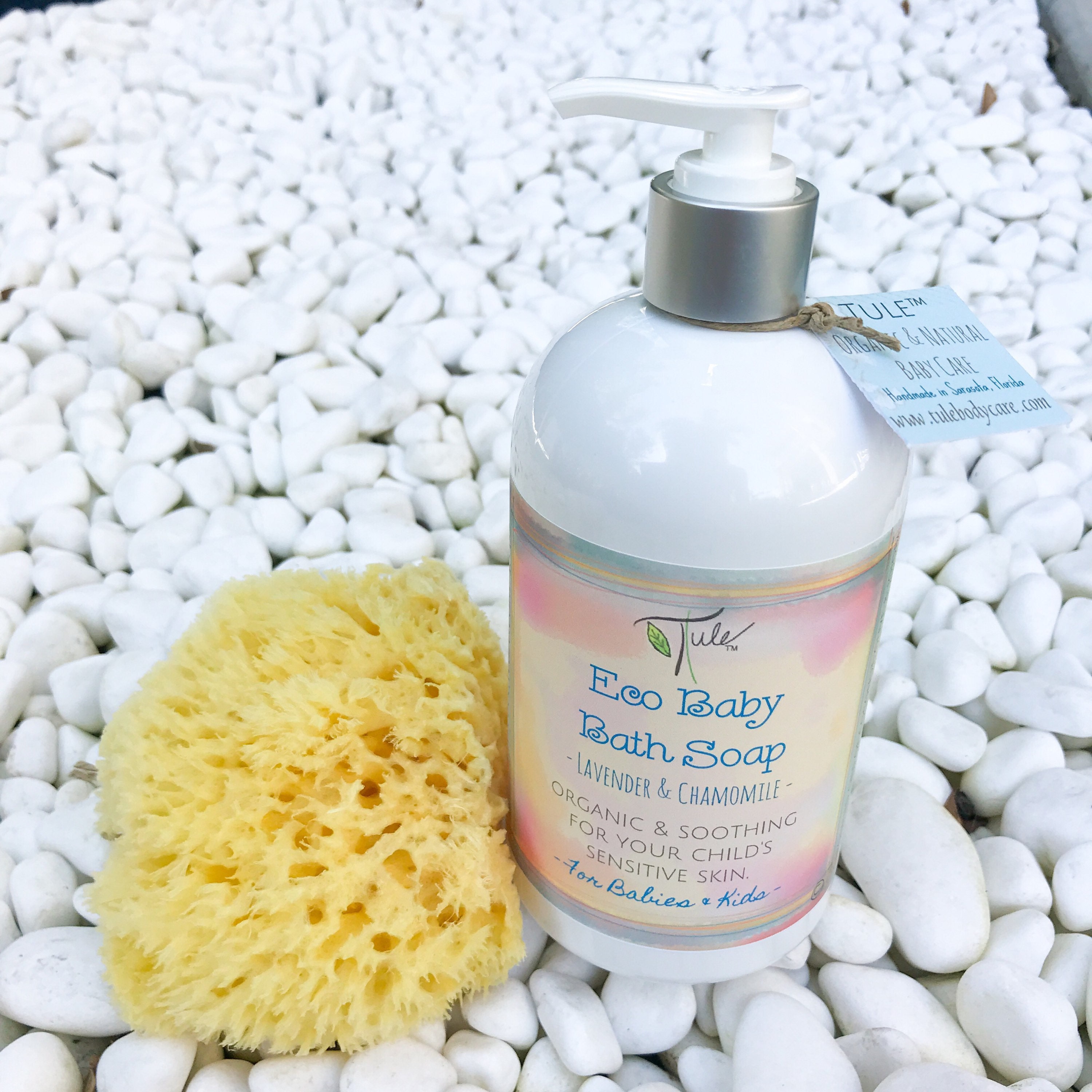Naturally derived soap is a product made by reacting animal or vegetable oils with an alkali (in the case of Tule™ Baby Bath Soap and The Nourishing Face & Body Soap, olive & coconut oils are used). Real soap's pH level is pretty high, usually around 8.9, which is not irritating to our skin. Our eyes are very sensitive, though, tolerating a pH of around 7.54 (a pH of 7 is neutral). Levels higher than 7 is considered alkaline, which is why our eyes feel a slight sting. “Tear free” products’ PH levels have been neutralized to reduce this eye irritation, especially for babies and kids. Sounds good, right? Well, not only does this alteration lower the cleaning ability of the soap, but it also means these products are mostly always made of synthetic ingredients, such as petro-chemicals, derived from petroleum. Even though they are very “mild” petrochemicals, they’re still petrochemicals! ...Yuck!
It’s not really accurate to call these tear free products soap, because they actually really are NOT soap, simply based on the definition of soap! Many times, companies use the terms "cleanser" or "body wash" to describe their products, if they fit this synthetic soap category. Tear free cleansers are synthetic replications of soap, and many baby products are made from non-soap surfactants, with petroleum-based ingredients. These "faux soaps" usually also have synthetic preservatives, which can cause skin irritation, especially on young children and babies. So the eyes won’t sting, but the skin may suffer... That's crazy! Ironically, the parents who are washing their babies with tear-free products, were once washed with real soap, or non-tear free products, and they survived bathtime just fine!!
*I recently changed the names of a few of the Tule™ soaps because they are, in fact, real soap, not synthetic "cleansers" or "washes".
Bottom Line: Avoid eye contact with real soaps, especially during bathtime for babies and young children!

